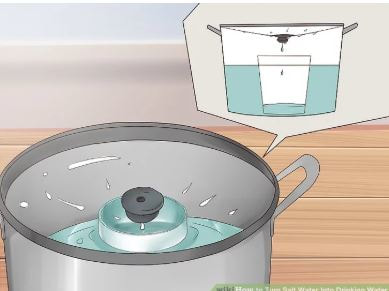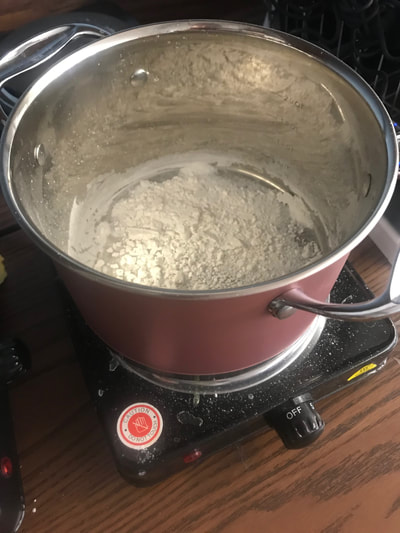Knowing that all the treated freshwater leads into the ocean, and that the vast majority of the Earth's water is saltwater, students wondered:
Can saltwater be cleaned so we can drink it?
While it certainly can, we did some heavy lifting with mathematical thinking to figure out the following:
1. It takes a LOT of time to get a really small amount of drinking water. We waited 10-20 minutes to get 2-3mL of water. Our water logs and research revealed that we use around 90 GALLONS a day. So no way is this process going to give us the water we need!
2. It is really expensive to do this. For the city of Chicago alone, it would take almost $1million dollars to do this for everyone living here! Plus, we don't have access to the vast amount of energy required for such a process.
3. It's not really environmentally conscious! Using all that fuel to heat the water to get it to evaporate and catch it in a different place isn't really considering being environmentally friendly.
So if the Earth is mainly covered in saltwater, and cleaning saltwater to make it drinkable isn't really a viable option for most people (although some countries do use this process), where do people get their drinking water from?
It's time to explore freshwater drinking sources and figure out the other part of our driving question: Where do we get our clean water from and where does it go once we make it dirty?
Can saltwater be cleaned so we can drink it?
While it certainly can, we did some heavy lifting with mathematical thinking to figure out the following:
1. It takes a LOT of time to get a really small amount of drinking water. We waited 10-20 minutes to get 2-3mL of water. Our water logs and research revealed that we use around 90 GALLONS a day. So no way is this process going to give us the water we need!
2. It is really expensive to do this. For the city of Chicago alone, it would take almost $1million dollars to do this for everyone living here! Plus, we don't have access to the vast amount of energy required for such a process.
3. It's not really environmentally conscious! Using all that fuel to heat the water to get it to evaporate and catch it in a different place isn't really considering being environmentally friendly.
So if the Earth is mainly covered in saltwater, and cleaning saltwater to make it drinkable isn't really a viable option for most people (although some countries do use this process), where do people get their drinking water from?
It's time to explore freshwater drinking sources and figure out the other part of our driving question: Where do we get our clean water from and where does it go once we make it dirty?


 RSS Feed
RSS Feed